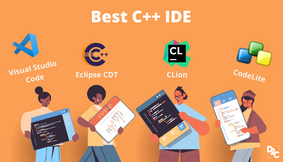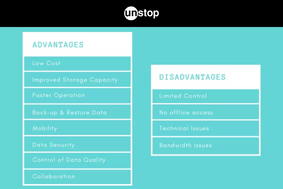- What is competitive coding?
- Reasons to take part in competitive coding events
- Requirements to take part in competitive coding events
- Popular competitive events you must know
- Tips for performing well in the competitive coding events
- FAQs regarding competitive programming
Competitive Coding: Tips For Competitive Coding Events | FAQs

Competitive coding is analogous to 'Olympic competitions' in the programming world, but there are no bars in terms of age, gender, etc. From people who have just finished high school to the ones who are already established in their careers, everyone has the opportunity to participate in competitive programs.
In addition to being a fun activity, participating in these events is an effective way to study for technical interviews, which are majorly coding rounds that require candidates to demonstrate an in-depth understanding of complex algorithmic frameworks and data structures. In fact, many tech companies have made competitive programming a part of their hiring process. Let's get into the details of the world of competitive coding.
Ready to compete? Check out these latest hackathons on Unstop!
What is competitive coding?
The term 'competitive coding' refers to a format in which teams of programmers compete against one another to solve real-world programming challenges within a predetermined time frame and other constraints. Programmers who compete in these coding tournaments are referred to as 'sports' programmers.
Many do it as a means of earning a living, while others do it simply to improve their coding abilities. Participating in a coding competition not only enables you to evaluate your skills as well as your level of expertise but also provides you with the opportunity to evaluate your performance in comparison to that of other programmers from all over the world. Apart from that, individuals participating as programmers are eligible for a wide range of opportunities, including internships, jobs, awards, and scholarships.
Do you know? One of the oldest contests, International Collegiate Programming Contest (ICPC) originated in the 1970s and currently has over 88 countries participating in it.
It is important to bear in mind that aggressive programming is not a skill that can be picked up in a matter of days before beginning to work with it. To start, there is going to be a necessity for some amount of time in addition to a substantial amount of practice.
Reasons to take part in competitive coding events
Coding is considered to be a challenging profession. And, once you begin working in this field, you might face new issues that no one else tackled before and you might be required to address them. At a certain point in time, it will be essential for you to start making use of your academic ability for problem-solving talents as well as logical arguments to come up with an optimal solution in the shortest time limit or via the shortest path available.
If you want to work for major companies such as Microsoft or Amazon, which hire employees via competitive programming, then you have to get your hands dirty in the domain. You need to follow some steps and strategies to prepare you for competitive programming. It doesn't matter how long you have been programming or how much code you have produced in the past; you need to perform absolutely the best.
Here are some reasons for why one must competitive coding events:
1. Face new challenges: Competitive coders address a wide variety of problems spanning many domains, including number theory, combinatorics, data structures, graph theory, sets, pure calculus, mathematics, and numerous others. As a result, they help in addressing difficulties that arise in everyday life, such as determining the quickest route from the origin to the destination, calculating interests, or determining the fewest number of moves possible. Through consistent practice, one can increase his/her capacity for both analytical and creative thinking.
2. Prepare yourself for technical interviews: The conventional coding interview is somewhat similar to a programming competition in many aspects. Each of these calls for the resolution of precisely outlined programming problems and tends to emphasize widely used methods rather than industry-specific technologies, and offers bonuses for finding solutions quickly.
3. Showcase your technical skills: The majority of developers do not have any sort of public record apart from their CV, which frequently contains statements that are challenging to confirm because they entail non-public work. Thus a competitive programming score or a history of committing code to projects hosted on GitHub is really useful. Both of these are ways to demonstrate that you can code.
If a hiring manager notices a link on your curriculum vitae that displays your competitive programming contest performance, then he/she is more likely to call you for an interview.
4. For enjoyment: Entering programming competitions to improve one's programming skills provides motivation, similar to that provided by joining an amateur sports league to increase one's level of physical activity. It is a good strategy to keep yourself motivated and upskilled. So for people who love to compete, coding competitions are indispensable events.
5. Level up your coding skills: For a software engineer, writing a brief program in 30 minutes to solve a challenge is different from writing a comprehensive application. Thus, coding competitions help them to think outside the box and come out with the most creative solution to a problem.
Competitive programming helps you become accustomed to thinking more rapidly and effectively. Because of this, you can arrive at the best decision in the least amount of time. As you become better at what you do, you will be able to transition from one job to the next much more easily.
What are the requirements to take part in competitive coding events?
Before we get into the tips for winning the competitive coding, we'd want to go through some of the criteria for competitive programming. When it comes to competitions, having the correct mindset may make a huge impact. Be sure to keep in mind that having all of the important details in front of you at the beginning gives you the ability to build a strong foundation.
Pick your programming language: Although you can compete in any language of choice, C/C++, Java, and Python are the most commonly used languages. Hence, proficiency in any of the languages is essential for participating in coding events.
Consider a faster programming language: The reason for this is the amount of time it takes for a program to be executed. So, if you select a programming language that has a relatively short amount of time needed to complete a program, then you will have a significant advantage over your competitors.
C/C++ and Java are comparatively speedier programming languages, especially when compared to other languages such as Python.
Gain an understanding of the fundamental knowledge of algorithms and data structures: When it comes to finding the best answer to almost any coding issue, you will almost always need to make use of a particular data structure or technique. Hence, you must have a fundamental understanding of data structures as well as algorithmic procedures. Both data structures and effective algorithms contribute to the overall effectiveness of a program. Also, if you have a good level of knowledge in DSA data structures, then you will be able to select the best data structure for every problem as well as implement it using the logic which is the most optimal for that structure.
Building algorithms: The development of efficient algorithms that can tackle outlined computational challenges is at the core of the sport of competitive programming. The development of a basic algorithm calls for proficiency in both problem-solving and mathematical concepts. Also, competitive programming places a significant emphasis on mathematical skills.
Learn space and time complexity: In the majority of situations, more than one solution to a problem already exists. Because of this, it is necessary to devise the most effective solution (also known as an optimal solution) which is determined by the amount of time and space that advanced algorithms require to resolve a problem. For this reason, it is of the utmost importance to acquire knowledge of these two principles before attempting to compose the best possible answer to the problem.
Try hard-level coding problems: You have learned a programming language. You have mastered time and space complexity. And, you've also covered the principles of DSA. Now, you should take part in coding competitions offered on a variety of different competitive programming platforms. It might be a good idea for you to practice basic programming challenges on your own as well before engaging in competitive programming and then you could participate in the coding contest itself.
Popular competitive events you must know
Google Kick Start: It is an international digital coding competition. Each round of this competition lasts for three hours and comprises a variety of algorithmic tasks devised by Google experts. People have a chance to compete in one or all of the online rounds kept during the year. This way, participants get a chance to develop as well as grow their programming skills whilst also getting a glimpse into the technical skills required for just a career at Google.
Google Code Jam: It is Google's longest-running international coding competition that challenges programmers all around the globe to solve difficult algorithmic puzzles while racing against time. Contestants get the opportunity to participate in the annual “Code Jam World Finals” by advancing through a total of four online-hosted rounds before the event. In the Finals, the top 25 competitors compete for cash prizes as well as the coveted championship title.
Facebook Hacker Cup: The Hacker Cup is a tournament for open programming that takes place every year on Facebook. We suggest you apply your problem-solving and algorithmic coding talents to progress through every year's online rounds, receive prizes, and have the opportunity to make it through to the global finals as well as win the grand prize. This competition is open to people from across the world.
Google's Hash Code: It is a team-based programming competition hosted by Google. It allows you to showcase your expertise and network with other programmers while you work together to find a solution to a problem. Coders from all over the world will work together in small teams of two to four members to solve the first challenge presented to them in an 'online qualification round'. Even though this round is run entirely online, teams are free to compete against one another in person in locally coordinated hubs of such Hash Code competition. The most successful teams from this round will be extended an invitation to attend the annual 'Hash Code Final Round', which will take place at one of Google's offices.
Tips for performing well in the competitive coding events
1. Understanding: In the beginning, devote sufficient time to thoroughly familiarize yourself with each of the programming languages' concepts. To acquire a comprehensive understanding of programming principles, you can learn from traditional books, as well as many different online platforms, along with the community of programmers. There is currently a great number of online communication platforms where competitive programming communities can connect with one another.
2. Start simple: Programming competitions aren't quite difficult, but they do require a certain amount of forethought, as well as persistence. You should begin by solving some straightforward programming tasks and then proceed to draw a flowchart outlining how you intend to address the challenge. After you've mastered the simpler issues, it's time to move on to the more difficult ones.
3. Optimize code: When you have reached the point where you are proficient in developing a correct code that can solve problems that are encountered in the real world, it is high time for you to concentrate on shortening the code that you have written. Get rid of unnecessary lines of code, and educate yourself on how to make improvements. To master programming skills, this stage is the single most crucial step. It is the transition phase between the basic programming stage and the competitive programming stage. Let's take an example:
Imagine that you have written a straightforward piece of code for a library management system. Now you should attempt to condense it in such a way that the identical job may be done in a manner that is both significantly less complicated and quicker. You can begin by simply recognizing the problem and creating your clean code for it. Now take a look at the best possible answer to find out how it could be minimized. This represents the most significant part of the process, as well as the phase of transition from beginner programming to advanced competitive programming.
4. Practice, practice, and practice: When it comes to being a successful competitive programmer, patience, dedication, and consistency are extremely vital traits to have. You should keep practicing the author's code problems every day and acclimatize yourself with all the well-known algorithms.
Keep at it, regardless of how challenging the problem is or the duration of time it takes to tackle the single code challenge. Participate in a variety of different dynamic programming challenges and garner knowledge from the experiences of other programmers.
5. Participate in various online coding competitions: Now is the time to begin taking part in coding competitions. The tournaments might take place at your school, on the internet, or on online competitive programming sites.
Because this is a competition, it goes without saying that the strongest and most capable participants will prevail. Another benefit of participating in these events is that you would receive a rating based on the effective submission of such code as well as the competitions that you win, both of which will contribute to the strengthening of your professional portfolio.
6. Stay up-to-date: Apart from fundamental concepts, maintaining current knowledge of emerging technologies as well as developments is a must in perfecting your competitive programming skills. Every time you enter a coding competition, updated knowledge will certainly keep you a step ahead.
FAQs regarding competitive programming
1. Who is eligible to take part in a competitive programming event?
Anybody can compete. You only need to possess the necessary talent as well as a strong desire to succeed.
2. Which programming language is considered to be the most effective for competitive programming?
When it comes to programming competitions, C++ and Java are indeed the two best languages to use. The majority of participants in programming competitions use the C and C++ programming language combination. Java is the language used the second most frequently after C. Because every single coding language has its implementation of STL and Java Libraries, C++ and Java are the most popular choices for faster programming languages.
3. What's the significance of online coding competitions?
Competitive programming is essential for students to develop their thinking ability to solve problems. When you participate in competitive programming events, you develop a significantly faster ability to solve issues and understand new algorithms.
4. Why must you take part in a competitive coding event?
It's a terrific approach to differentiate yourself from other candidates in the technical interviews you face. Participating in a coding competition not only lends legitimacy to your name but also serves as an impressive highlight for your CV if you are currently searching for a new position. It is a fantastic opportunity for you to demonstrate your technical prowess and impart knowledge that is pertinent to the position for which you have applied.
5. What qualifications are needed to code competitively?
The syntax of any programming language (you can choose any, however, C, C++, or Java are strongly suggested). You are required to pass an en examination of the impact of time and space on algorithm complexity. You need to have the capability of thinking of an optimal solution that relies solely on brute force. Excellent training on all of the different types of data structures, such as arrays, lists, stacks, queues, trees, graphs, and ties, is required.
6. How should I start my competitive programming journey?
Only through taking part in various shorter programming competitions will you be able to develop your competitive programming skills to an advanced level. After you have competed in a few lengthy competitions, you should shift your attention to competing in as many contests as possible across a variety of coding platforms.
7. Where does the value lie in competitive programming?
Because you have to collaborate with the other members of your team to accomplish the same goal, participating in competitive programming is an excellent way to improve your ability to work successfully with others. You get the ability to evaluate the strengths and limitations of the members of your team as well as properly distribute duties among one another as a result of this learning.
Now that you know enough about competitive programming, it is time to wriggle up your skills, and get ready to #BeUnstoppable!
I am a storyteller by nature. At Unstop, I tell stories ripe with promise and inspiration, and in life, I voice out the stories of our four-legged furry friends. Providing a prospect of a good life filled with equal opportunities to students and our pawsome buddies helps me sleep better at night. And for those rainy evenings, I turn to my colors.
Login to continue reading
And access exclusive content, personalized recommendations, and career-boosting opportunities.
Subscribe
to our newsletter
Blogs you need to hog!

This Is My First Hackathon, How Should I Prepare? (Tips & Hackathon Questions Inside)

10 Best C++ IDEs That Developers Mention The Most!

Advantages and Disadvantages of Cloud Computing That You Should Know!










Comments
Add comment